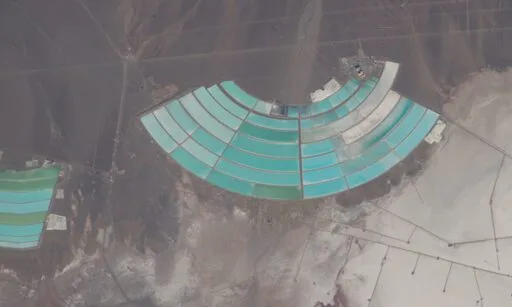From Extraction to Innovation: The EU and Taiwan in the Critical Minerals Value Chain
From Extraction to Innovation: The EU and Taiwan in the Critical Minerals Value Chain
From Extraction to Innovation: The EU and Taiwan in the Critical Minerals Value Chain – chinaobservers

...
China currently controls the global market for critical minerals used in clean energy, both in terms of extraction and processing.
...
The concentration of mineral extraction and processing in a single country has generated concerns about supply risks, particularly in the context of increasing geopolitical tensions and export restrictions.
The EU has therefore adopted a “de-risking” approach: rather than severing economic ties, the aim is to reduce vulnerabilities by diversifying supply chains and building strategic partnerships. Although Taiwan is not a producer of raw materials, it emerges as a promising partner due to its relative strengths in high-tech manufacturing, advanced material processing, and regulatory alignment with the EU.
...
Taiwan occupies a pivotal position in downstream segments of global mineral supply chains, particularly in high-tech manufacturing. Taiwan boasts an industrial base that includes companies engaged in the production of magnets, semiconductors, battery components, and other technologies that rely on stable and sustainable supply of critical inputs. Taiwan also plays a key role in the global smart machine supply chain, producing components and assembling products that depend heavily on rare earth elements. Other sectors also rely on REEs, including the growing medical technology sector, known for innovative treatments and virus detection tools. Taiwan’s high-tech industries are thus dependent on a stable REE supply chain across sectors.
Taiwan is also investing heavily in research and development (R&D) of circular economy for critical materials, including battery recycling and rare earths recovery. Companies such as Aleees (Advanced Lithium Electrochemistry) and E-One Moli (Molicel) are contributing to battery technology innovation. Non-profit and civil society organizations such as the Circular Taiwan Network contribute to developing mineral circularity strategies, while research institutions such as the Institute for National Defense and Security Research explore environmentally friendly extraction and substitution techniques, often through international collaborations. Taiwan has also sought to join global initiatives like the Semiconductor Supply Chain Initiative (SSCI), which, through TSMC’s involvement, contributes to securing the island’s critical mineral supply chains.
...
The complementarity between the EU’s strategic objectives and Taiwan’s industrial strengths creates a compelling case for deeper cooperation. While the EU has focused on securing diversified and green sources of critical materials, Taiwan excels in transforming these materials into high-value components. This downstream expertise – especially in the fields of electronics, mobility, and energy storage – is essential for achieving the EU’s green technology ambitions. Both sides also share an interest in enhancing supply chain transparency and traceability, especially considering the increasing scrutiny from investors, regulators, and civil society.
...